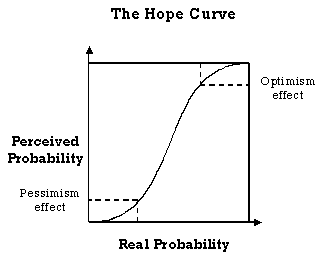 The parable of the prodigal son (Luke 15:11-32) is perhaps better named the parable of the lost son, since it is designed to go with the parables of the lost sheep (verses 3-7) and lost coin (verses 8-10). Some have even called it the parable of the prodigal father, because of the father's extravagance. Even today, after centuries of teaching about God's grace, the father's willingness to forgive his runaway son is shockingly generous.
The parable of the prodigal son (Luke 15:11-32) is perhaps better named the parable of the lost son, since it is designed to go with the parables of the lost sheep (verses 3-7) and lost coin (verses 8-10). Some have even called it the parable of the prodigal father, because of the father's extravagance. Even today, after centuries of teaching about God's grace, the father's willingness to forgive his runaway son is shockingly generous. This is Jesus' longest parable: 22 verses. Let's go through the parable, noting its story, its organization and its lessons.
Historical background and observations
1. Return of the lost son — verses 11-24
A. Departure of the younger son — verses 11-16
There was a man — A standard introduction to a parable. Who had two sons — The first parable in this chapter had one of 100 getting lost, the second parable one in 10, this one has one out of two becoming lost. The sequence emphasizes the magnitude of the lost son. To lose half your sons would be a tragedy, and regaining half would likewise be a greater cause for rejoicing.
The younger son — There's no mention of a wife, so he would probably have been 18-20. His youth isn't emphasized, but younger sons may be more likely to be foolish and older sons more likely to look down on a brother. Figuratively, the older son could represent the Pharisees and the younger one the newly religious Jews Jesus was teaching (verse 1). In the early church, the older son may have been seen as corresponding to the Jews and the younger son to Gentiles.
"Give me my share of the estate" — Inheritances were normally given only when the father died. The son's demand (not a request) for an early distribution was unusual and frowned upon. Traditionally, firstborn sons were given twice as much as other sons, but we don't know if this was always done in Jesus' day. If so, the younger son would have received one third of the estate. The amount isn't stressed. Nor are we told how the property was divided. Such details are ignored because they aren't part of the point.
Divided his property — Early distribution of the estate normally meant that the father continued to receive the benefits of the estate as long as he lived. (Hence the father could kill the fatted calf without asking the older son who owned it.) The younger son didn't just receive surplus property; it was part of the father's source of income. (The word for property is bios, meaning "the resources which one has as a means of living" (J. Louw and E. Nida, Greek-English Lexicon of the New Testament, volume 1, page 560, 57.18.) If a son sold land, the new owner could not use it until the father died. Again, such details are glossed over because they are not part of the point. Between them — The older son also received his share.
Not long after that — His departure was probably not surprising. His desire for his inheritance indicated he wanted to strike out on his own rather than continue being part of the family. He was insulting the family as well as injuring it. A distant country — A Gentile country. Many Jews lived in Gentile areas. Squandered his wealth in wild living — Not only did he waste the money, he sinned in the process. However, his sins aren't specified. Luke doesn't emphasize the sinning as much as he does losing the money. This is consistent with Luke's interest in possessions and poverty. Perhaps the prodigal son was trying to make friends by spending money on them.
Spent everything...began to be in need — His poverty is emphasized, not any deficiency in character. Luke is emphasizing his lostness, not his guilt.
To feed pigs — He had an unclean occupation, abandoning religious scruples, but still the emphasis seems to be on his poverty (hunger, verse 16) rather than sin.
He longed to fill his stomach with the pods — As if he wasn't allowed to eat the carob-tree pods! A servant would have received some pay. Jesus is painting a hypothetical, not an actual story, to emphasize the son's desperate plight. No one gave him anything — He received no alms (one of Luke's interests). His former friends did not help him.
B. The son decides to return — verses 17-20
When he came to his senses — This pivotal verse changes the direction of the story. "When" (rather than "it so happened that") seems to imply that his sanity was inevitable. "Repentance" is not used. My father's hired men — He contrasts himself, a hired servant of a Gentile, to his father's servants, who had plenty to eat. Food to spare...starving to death — Though the setting of the story is sin and repentance (verses 1-2), the story emphasizes financial destitution rather than moral corruption. "Starving" is another exaggeration. If he had been near starvation, he would not have had the strength to be able to travel back home.
Set out and go — Literally, "rising up, I will go." Commentators say this was a translation of an Aramaic idiom for go immediately. But "arise" may also hint at a rising in state of life.
Sinned against heaven — "Heaven" is a euphemism for God — used perhaps because the father represents God in the story. Specific sins aren't mentioned except in the accusations of the older brother (verse 30). And against you — He acknowledged his affront to the family — wasting the family's wealth.
No longer worthy to be called your son — This could be in a legal and a moral sense: He had no rights for further inheritance, and his behavior had not been up to family standards. Make me like one of your hired men — He was willing to earn his keep by serving the family (which would have meant serving his older brother, too). "Hired men" is misthioi, contract laborers, probably farmhands, not the douloi, household bondservants, mentioned in verse 22.
C. Reception by the father — verses 20-24
While he was still a long way off, his father saw him — Some commentators say this implies that the father was continually watching for the return of his son. This is conjectural; the text says nothing about watching, nor does it add a word like "when" to imply inevitability. It says: "The son being yet far off, his father saw him." Certainly, the father was extremely willing to seek reconciliation — seeing the son far away shows that (as do later verses), without any need to add the idea of watching.
Compassion...ran — These words emphasize the father's enthusiasm. In ancient societies, it was considered undignified for an older man to pull up his robes to run. His actions, representative of God's feelings for repentant sinners, show enthusiastic acceptance, love and joy. Kiss — Perhaps a sign of forgiveness (cf. 2 Samuel 14:33). The son didn't finish his speech, perhaps because he was cut short by his father.
Best robe...ring — Both robe and ring may allude to Joseph's promotion to authority (Genesis 41:42). Robes were given to honored guests; the ring was a signet ring, indicating authority. Sandals — Servants did not wear sandals; only family members did.
Fattened calf — Meat was eaten primarily on festivals, and calves would be fattened for such feasts, so perhaps the celebration here hints at a religious reconciliation. The celebration corresponds to the "rejoice" of the parables of the lost sheep and coin.
This son of mine was dead — In what way was he dead? Here are two possibilities: 1) The father heard about the famine, hadn't heard from his son in a long time, and thought he had died. 2) Perhaps he counted him metaphorically dead because he had become as a Gentile. Some Jews conducted funerals for children who married Gentiles. But the father doesn't seem to be the type to disown his son.
2. Conflict with the older son
A. The older son comes home — verses 25-27
So far, this parable has been parallel to the first two parables; the lost has been found and there is rejoicing. Now the older son is introduced for an additional lesson in the parable. In some ways this is two parables in one, both parts ending with the statement about dead and alive, lost and found. Both sons are lost — one who left home (like the sheep that was lost in v. 4) and one who was lost even while at home (like the coin in v. 8). Both the "sinners" and the Pharisees were separated from God — the first ones are visibly lost, the others still live at home — but both are welcomed when they turn to God.
The older son's arrival on the scene is odd; normally a servant would have been sent to get him at the start. But in the parable it is as if the older son found out about the party by accident. Some commentators say this implies the son was out of touch with his father, estranged in attitude or too addicted to work. This seems to read too many details into the story.
The older son is contrasted to the younger: The younger starts the story by leaving home, the older starts by returning. The younger then decides to go home, the older refuses to enter. The younger wants to be his father's servant, the older son resents being a servant. The younger son admits guilt; the older one insists on his own innocence.
The servant (pais, a child or servant) describes the younger son as "safe and sound," or in health; this is less dramatic than the father's comment about dead and alive. The servant is matter-of-fact; the father is elated.
B. Complaint of the older son — verses 28-30
The older son became angry — in contrast to his father's compassion — and he did not want to go in despite knowing his father's will. His father went out — in contrast to the older son's unwillingness to come in. The father went out, just as he had done for the younger son. Pleaded with him — The father eagerly desired for the older son to share his joy. Normally a son would simply do what his father said to do; here the older son is disobedient. The older son had inherited his father's estate, but not his attitude of mercy.
Look! — The older son starts abruptly, hinting of disrespect, frustration and impatience. I've been slaving for you — The verb is douleun , related to doulos, servant. His relationship to his father was based on work, not love. Never disobeyed — until now.
You never gave me even a young goat — Yet a goat is of lesser value than a calf. But the father would have given a goat if the son had asked (verse 31). The son felt unappreciated and unrewarded; his complaint suggests that he had a long-smoldering resentment. He complained about the extra given to the younger — similar to the workers in the vineyard who complained about a days' wage being given to those who worked only one hour.
This son of yours — The older brother doesn't say "my brother"; it is as if he no longer claims him. Squandered — Literally, "devoured," an ironic word for a hungry man. Your property — This continues the emphasis on physical possessions. The younger son had wasted part of the family estate, failing in his duty to provide for his father. With prostitutes — Did the older son really know how his brother had spent the money? Perhaps the waste had begun before the son left home, or perhaps some reports had come back from the far country. Both are possible, but the story says nothing about it. This suggests that the older son was making an unsubstantiated accusation.
C. Response of the father — verses 31-32
My son — The usual word for "son" in this parable is huios; here it is teknon, "child," a term of affection. Everything I have is yours — The older son will get the entire inheritance. Some commentators speculate about the legal status of the property rights and whether the younger son could have inherited something, but the parable says nothing about it. Inheritance details are not the point; acceptance or reconciliation is. Older sons inherited twice as much as other sons because they had a responsibility to the family. The older son would have had a duty to take care of a brother who fell on hard times. But the older son was not willing to accept this responsibility; he simply wanted the property.
We had to celebrate — The word edei is used, meaning "it was necessary." Rejoicing about the return of a lost person isn't just an option; it is a necessity. This brother of yours — Not "my son," but "your brother." The father reminded the older son of his family responsibility. The implication is that it is necessary for him to rejoice.
What this parable teaches us about God
The context helps us understand the lessons of the parable. Verses 1-2 tell us that sinners and tax collectors were being taught by Jesus. Pharisees then criticized Jesus — not for teaching them, but for eating with them, which was a sign of social acceptance. The Pharisees tried hard to be righteous, and they were disturbed that Jesus accepted people who hadn't been trying hard. Perhaps they were worried that Jesus was making it too easy on people, and his acceptance might encourage others to be lazy.
Jesus then gave the parables of the lost sheep and the lost coin, both illustrating the point that God rejoices about each sinner who repents. "There will be more rejoicing in heaven over one sinner who repents than over ninety-nine righteous persons who do not need to repent" (verse 7). There's no such thing as a person who has no need for repentance, but the Pharisees weren't yet aware of that. There would be rejoicing for them, too, if they would accept it.
The parable of the lost son continues the theme of rejoicing and adds to it. The first half of the parable illustrates rejoicing over a sinner who returned; the second half more directly addresses the situation Jesus faced: criticism about his willingness to be with sinners. Jesus, by telling the parable the way he did, chides those who do not rejoice about the sinners' interest in being taught (figuratively, returning to God).
In the first two parables, the lost were found by searching. But the younger son was found by waiting. The spiritually lost were already coming to Jesus; he didn't need to seek them out. They had been spiritually dead and were now showing interest — they wanted to be taught by Jesus. Jesus received them and ate with them. His reception would have encouraged them to keep the laws they already knew and to continue to listen to him for more instruction in God's way.
But the parable is not just about Jesus in the first century; it is a timeless message about God the Father. He rejoices over (cf. the celebration) and honors (cf. the robe, ring and sandals) every sinner who repents. He doesn't wait for a full and formal apology; he perceives the attitude and comes toward us. This theme of joyful acceptance, similar to that of the first two parables of this chapter, dominates the first part of this parable. This is the lesson illustrated by the father: He is always ready to welcome a returning child.
The parable shows that sinners can confess and return to God. Since God is gracious, sinners can return to him with confidence that he will warmly welcome them. But in the parable, financial destitution is more prominent than moral fault. Unlike the first two parables, the word repent is not used; only superficial reasons are given for the son's return. As Jesus spoke to the Pharisees, encouraging sinners to return was not the main issue; the main issue was what to do about sinners who were already willing to return.
Most importantly, the parable shows that God's people should rejoice at a) the willingness of sinners to turn to God and b) the willingness of God to receive them. This is the lesson of the second half of the parable, illustrated by the father's correction of his older son. This theme most directly addresses the setting of the parable, the Pharisees' criticism of Jesus' reception of sinners. The parables of the lost sheep and lost coin and the first half of the parable of the lost son are preparatory to this main point.
These themes are timeless. God rejoices over each person who repents, and so should we. We need not kill a calf for repentant persons (Jesus didn't; the parable illustrates the attitude of rejoicing, not the specific actions we should take). We need to accept repentant sinners to social fellowship (cf. eating with them, verse 2) and religious instruction (cf. allowing them to listen, verse 1). This particular parable does not say we should seek outcasts (that is shown better by the parables of lost sheep and lost coin), but that we should be happy when they come to us to be taught.
In effect, Jesus' story shows that it is ungodly to refuse to rejoice about repentance. The Pharisees, by insisting on a too-strict standard of righteousness, were being unrighteous. They, too, needed to repent.
Epilogue
The parable ends without revealing what the older son did. Would the hard-hearted son change his mind and rejoice about his brother's return? For the situation in Jesus' day, either response was still possible — it was up to the Pharisees. Would they rejoice with Jesus? History shows that some did and some did not.
Similarly, the parable does not reveal what the younger son did. Did he abuse his second chance? That also reflects the situation Jesus was in. Would the tax collectors and sinners continue in their repentance? It was not yet known. Nevertheless, it is appropriate — no, necessary — to rejoice at their first change of heart, rather than waiting for some probationary period.
.jpg)












